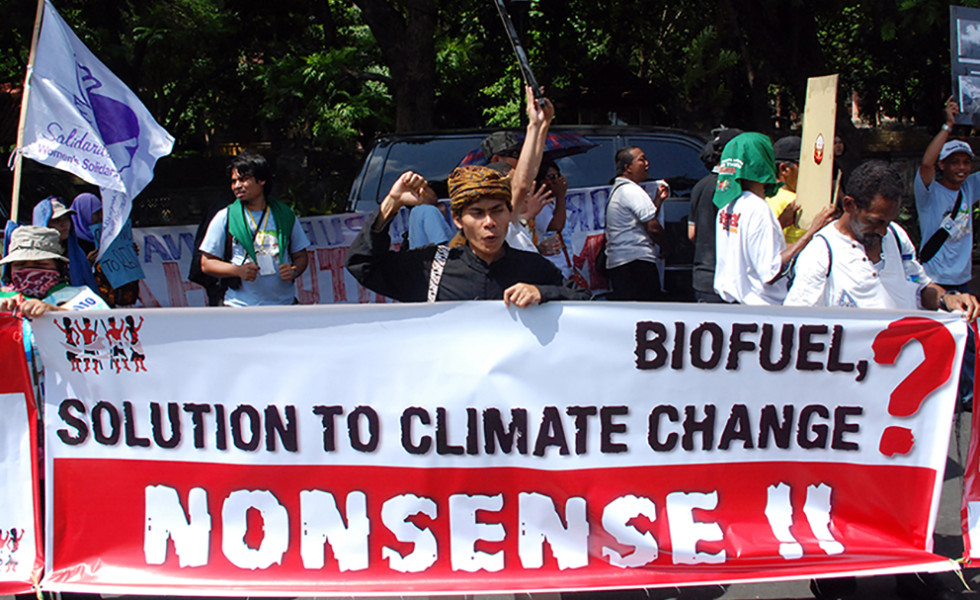Source: ejolt (Environmental Justice Organizations, Liabilities and Trade)
By the World Rainforest Movement.
Will the Brazilian government give a permit to plant genetically modified eucalyptus trees on a commercial scale? That’s the breakthrough expected by Suzano, one of the biggest Brazilian pulp and paper companies, and its fully owned biotechnology firm Futuragene. To export pulp and to feed its paper mills in Brazil, the company has planted almost 400 thousand hectares of large-scale monoculture fast-growing eucalyptus plantations in seven Brazilian states.
Suzano´s argument that this is a safe enough technology can be countered by the risks and especially the huge uncertainties that exist around this new technology which should at least postpone any introduction at commercial scale for now. Even the Forest Stewardship Council (FSC) that has seriously failed by allowing certification of millions of hectares of large-scale monoculture plantations in spite of the many negative social and environmental impacts, at least applies the rule that GE technology should not be used in certified plantations. At least for this reason then, FSC should decertify Suzano, an FSC-certified company.
But another argument deserves a strong and immediate reply: Suzano argues that their new genetically engineered eucalyptus tree will result in a 20% increase in productivity and by introducing such trees, Suzano affirms it will need less land and could therefore reduce the use of chemical inputs and make more land available for food production.
That looks convincing. However, the experience in Brazil itself shows a quite different story. According to EJOLT´s report “A Global Overview of Industrial Tree Plantations”, in the past decades the Brazilian eucalyptus trees that are used in industrial plantations succeeded to achieve a 60% increase in productivity per hectare (not using genetically engineered trees), increasing from 27 m3/ha/year in the 1980s to 44 m3/ha/year currently. More important however is that the area covered by these plantations in the country never decreased for that particular reason. They actually increased from about 4 million hectares at the end of the 1980s to more than 7.2 million hectares today, and the Brazilian plantation industry plans to duplicate this area by 2020. The Brazilian “success story” of being the country with the highest wood productivity per hectare worldwide has never been a reason to use less land, on the contrary. Higher productivity gave these companies such an advantage that they expanded their plantations and pulp mills more and more, increasing their profits.
Suzano´s move to GE eucalyptus trees to increase productivity even more also attends its aim to explore a new use of its wood: producing pellets to be exported for energy production, to co-fire with coal in the UK. For this reason, Suzano has expanded its plantation in the Northeastern state of Maranhão over the past years, causing new conflicts with traditional communities that have been experiencing that their communal territories used for cattle grazing, fruit collection and other activities, get invaded by eucalyptus plantations. This has led to several conflicts, which gave reason to include Suzano in the recently launched EJOLT´s Atlas on Environmental Conflicts.
To summarize, Brazilian experience has learned that rather more than less lands will be occupied when productivity increases, and rather more than less conflicts will arise. Suzano´s demand for commercial planting of genetically modified eucalyptus trees led WRM, together with groups in Brazil and Latin America, to launch a letter to the Brazilian authorities to express their deep concern and urge the Brazilian government not to authorize the commercial release of yield enhanced genetically modified eucalyptus by Suzano/FuturaGene or by any other company that also has, or will present in future, a request for such a release.
A statement from the international Stop GE Trees Campaign in support to this letter is available for sign-ons.





